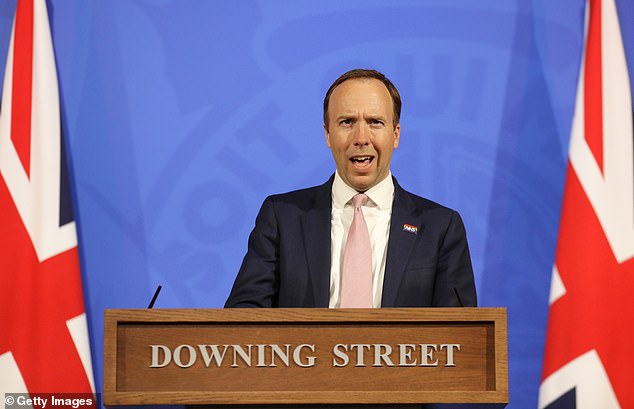How Matt Hancock wanted to PLAY GOD during Covid: Ex-NHS chief Sir Simon Stevens sensationally reveals former Health Secretary pushed to ‘ultimately decide who should live and who should die’ if hospitals became overwhelmed
Matt Hancock wanted to decide ‘who should live and who should die’ if the NHS became overwhelmed during the pandemic, the UK Covid inquiry heard today.
In a witness statement, Lord Simon Stevens, the former chief executive, said the comments were made at a planning meeting in February 2020.
He said the former health minister “took the position” that he – and not doctors or the public – should “ultimately decide” which patients should be cared for.
While noting that this situation “never crystallized” during the Covid crisis, he said he would “discourage the idea” that any individual should have to make this decision.
In a witness statement, Lord Simon Stevens, the former chief executive, said the comments were made at a planning meeting in February 2020.

Lord Simon Stevens’ witness statement said: ‘The Secretary of State for Health and Social Care has taken the position that in this situation he – rather than, for example, the medical profession or the public – should ultimately decide who should live and who should die.’
In his written submission to the inquiry, Lord Stevens shared details of a planning exercise – called Operation Nimbus – on February 12, 2020.
Led by the Cabinet Office, the aim was to set out how the government would respond to a ‘reasonable worst-case scenario’ in which there are 1.6 million new cases per week – 1.25 per cent fatal – and 860,000 deaths are predicted in the U.S. the upcoming months.
Lord Stevens wrote: ‘My feeling at the time was that it usefully sensitized a wider range of government departments (outside the health sector) to the kind of pressures that Britain might experience.
‘It resulted – at least in my view – in an unresolved but fundamental ethical debate about a scenario in which increasing numbers of Covid patients overwhelmed the ability of hospitals to care for them and other non-Covid patients.
‘The Secretary of State for Health and Social Care took the position that in this situation he – rather than, for example, the medical profession or the public – should ultimately decide who should live and who should die.
‘Fortunately, this terrible dilemma never became a reality.’
Lawyer Dermot Keating noted that former Health Secretary Jeremy Hunt believed the decision on what care to ration should be made by clinical staff.
He asked Sir Stevens whether Mr Hancock’s position was ‘an appropriate course’ or ‘desirable’.
Sir Stevens said: ‘I thought it would be highly undesirable except in the most extreme circumstances.’
He added: ‘I certainly wanted to discourage the idea that an individual Secretary of State should, except in the most exceptional circumstances, decide how care will be provided.
“I felt like we are well served by the medical profession making these types of decisions in consultation with patients as much as possible.”
